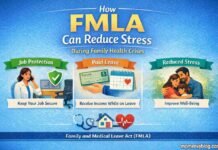A CONCUSSION can be described as a traumatic injury to the brain that affects an individual’s brain function. Concussions differ and so do their effects. Normally, a concussion is caused by a blow to someone’s head. Shaking the upper body or the head violently can also lead to concussions. While some concussions may cause unconsciousness, most of them don’t.
This means that it’s possible for one to have a concussion and fail to realize it. Concussions are common among sportsmen and women who play contact sports, for instance, football, basketball, and even rugby.
A major challenge in managing concussions is the notion that it only becomes a concussive injury if there is unconsciousness and impairment related to the external trauma. Nothing is more misleading than that. It has been proven that a mild brain injury can have far-reaching effects leading to long-lasting cognitive deficits. Yet another misconception is that concussion symptoms occur instantaneously. This is not so in all cases; some patients show signs of concussive injury days or even months after the head injury. If you recently experienced a jolt or blow to the head or upper body and you are exhibiting any symptoms however mild, it is advisable that you get a test. You can visit Start care health providers for a concussion test.
When it comes to concussions, the symptoms can be subtle and may not necessarily show up immediately. If you’re experiencing any of the signs listed below, you need you to get a concussion test as soon as possible.
- Cognitive or memory symptoms
- Mood or emotional symptoms
- Physical symptoms
- Sleep symptoms
- Post-traumatic vertigo
- Non-immediate symptoms
- Specific symptoms in children
- Danger concussion symptoms
Having categorized concussion symptoms as above, let us delve into specific signs of each category.
1. Cognitive or memory symptoms-
After a head injury or an incident of intense shaking of the upper body, you might need to get a concussion test if you exhibit certain signs. These include: difficulty in concentrating, delay in responding to questions, feeling slow and bogged down, and difficulty in thinking clearly or even if you find it difficult to remember new information.
2. Mood or emotional symptoms-
Some symptoms that are related to concussive injury include: irritability, constant sadness, experiencing anxiety and depression or nervousness, becoming more emotional than usual or even erratic emotions for instance outburst and inappropriate anger.
3. Physical symptoms-
Physical Depression symptoms are the most common ones and are the easiest to notice. Examples are: dizziness, headache, temporary unconsciousness, slurred speech, ringing in the ears, experiencing fuzzy or blurred vision, becoming sensitive to noise or light, fatigue, nausea with vomiting from time to time and having problems with balance. If any of these or a combination of these signs occur, you will need to get a concussion test. You can get more information on this link.
4. Sleep symptoms-
The most common sleep symptoms as a result of concussive injury are: sleeping more than usual, sleeping way much less than usual and having trouble falling asleep.
5. Post-traumatic vertigo-
After a brain injury, some people may experience dizziness or a sense of spinning for days, weeks or even months after the injury. Vertigo can basically be described as a sudden spinning sensation triggered by abrupt movement of the head.
6. Non-immediate symptoms-
While some symptoms of concussion are experienced immediately, others may show hours or even days after the injury. These include: amnesia, change in sleep patterns, depression and psychological adjustment issues, disorders of smell and taste senses and other personality changes. If you happen to exhibit or notice some of these changes in someone you know after a head injury, it is paramount that a concussion test is undertaken. We all agree that prevention is better than cure.
7. Specific symptoms in children-
Head trauma Is a very common thing in young children. However, concussions can be quite difficult to recognize especially in infants and toddlers are given that they can’t exactly describe how they feel. Signs that suggest a concussive injury to your child can include: crying excessively, seeming confused, tiring easily and listlessness, crankiness, and irritability, change in eating habits, distorted sleeping patterns, unsteady walking which could suggest a loss of balance and lack of interest in favorite toys. If your child happens to have some of the above signs and symptoms, pediatrics recommend that you seek medical attention even if it doesn’t appear like an emergency. If after the injury your child still remains alert and responsive as normal, then the injury is probably mild and there is no need for further testing. However, if any worrisome signs develop later, seek medical attention immediately and have a concussion test performed on him or her.
8. Danger concussion symptoms-
Some symptoms are mild and may suggest that the injury is not as life-threatening as it seems. However, there are some signs that suggest imminent danger and should be treated with due urgency. These include: intensified confusion, agitation or restlessness, failing to recognize familiar people or places, looking extremely drowsy, having one pupil that is larger than the other (pupil dilation in one eye), drastic behavioral change and frequent seizures or convulsions. If your loved one happens to experience such signs, immediate medical attention ought to be accorded to them.
We have seen that concussive injury symptoms are quite many are not only related to unconsciousness as was the belief some years back. Additionally, the signs can be immediate or non-immediate, or even mild and intense. The best way to go about it is to have a concussion protocol test if you happen to experience any of these symptoms even if they show way much later after the injury incident.
It is also very important that you be on the lookout for changes whether physical or behavioral when it comes to infants and toddlers. We may not understand that concussions symptoms have an impact on our daily activities and those around us; as such, do not be in denial and assume you are perfectly fine when these symptoms show. Prevention is always better than cure.










